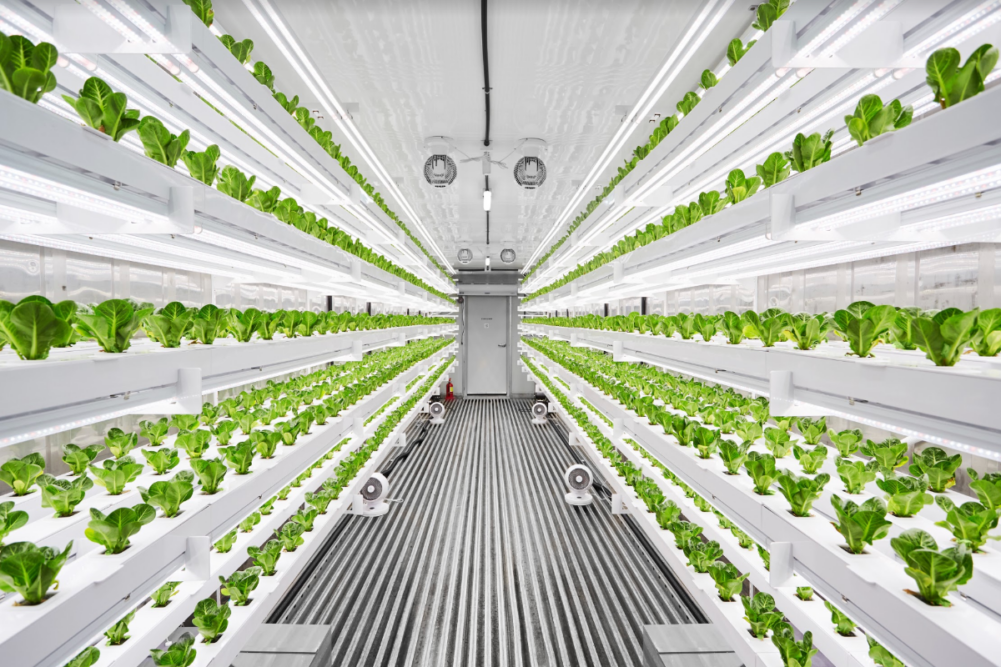 KANSAS CITY — Agriculture- and food-related technologies are becoming a larger part of CES 2022, the influential annual consumer technology trade show. Held in person Jan. 5 to 8 in Las Vegas and virtually, this year’s conference highlighted how innovators are offering solutions to problems once considered significant obstacles, most notably vertical farming and making pickup and delivery seamless.
KANSAS CITY — Agriculture- and food-related technologies are becoming a larger part of CES 2022, the influential annual consumer technology trade show. Held in person Jan. 5 to 8 in Las Vegas and virtually, this year’s conference highlighted how innovators are offering solutions to problems once considered significant obstacles, most notably vertical farming and making pickup and delivery seamless.
In its 2022 trends forecast, the International Food Information Council Foundation (IFIC) said consumers in urban areas will turn to vertical agriculture in their efforts to promote sustainability, nutrition and food security. Vertical farming solutions exhibited at CES ranged from large-scale operations to in-home applications, demonstrating how interest ranges between commercial and personal applications.
N.Thing is an agricultural technology company based in Seoul, South Korea, that offers N.Thing Cube, a container-size vertical farming solution. Crops that may be grown include fruits and root vegetables. At CES 2022, the company introduced a hemp growing application.
Growing conditions are managed by the N.Thing platform through the Internet of Things and artificial intelligence that monitors crop progress at every stage.
“More and more consumers globally are noticing why the locally produced vegetables are necessary,” said Leo Kim, founder and chief executive officer. “I look at vertical farming as the way forward, as an opportunity to show how software can feed the world sustainably. Ultimately, the end-goal is to achieve a consumer-driven market that means the food and crops can be produced what the consumers need on the time they need.”
Other companies exhibiting vertical farming solutions included Agrove, Aix-en-Provence, France; Hexagro Urban Farming, Milan, Italy; ioCrops, Seoul; and Urban Cuisine, Rennes, France.
The digitization of foodservice, with chains like Chipotle Mexican Grill and Starbucks testing digital-only stores, and the advancement and penetration of e-commerce in the wake of COVID-19 also were evident at this year’s CES. Numerous companies exhibited solutions to some of the most nagging problems associated with pickup and delivery.
Apex Order Pickup Solutions, Mason, Ohio, for example, exhibited its food locker solutions that are designed to improve the efficiency of the order pickup process, be non-contact and are secure, according to the company.
Minnow Technologies, Seattle, exhibited its Pickup Pods for home and commercial applications. The startup company is responding to the rise in food deliveries, the need for social distancing and consumer demand for no-contact options. Each pod has cubbyholes that are individually insulated to keep food fresh.
The IFIC trends forecast said more businesses will turn to ghost kitchens and adopt self-service kiosks at restaurants. E-commerce and direct-to-consumer sales also are seen increasing their presence in the food system, according to IFIC.
As exhibitors at this year’s CES showed, entrepreneurs and innovators are working to reduce food miles and bring some crop production closer to millions through vertical farming, and others are offering solutions that will improve the pickup and delivery experience.
Sustainability and direct-to-consumer models have been predicted to play a greater role in food production and distribution for years. Solutions exhibited at this year’s CES show both are well beyond the trend stage and set to alter how some parts of the food and beverage industry operate.





